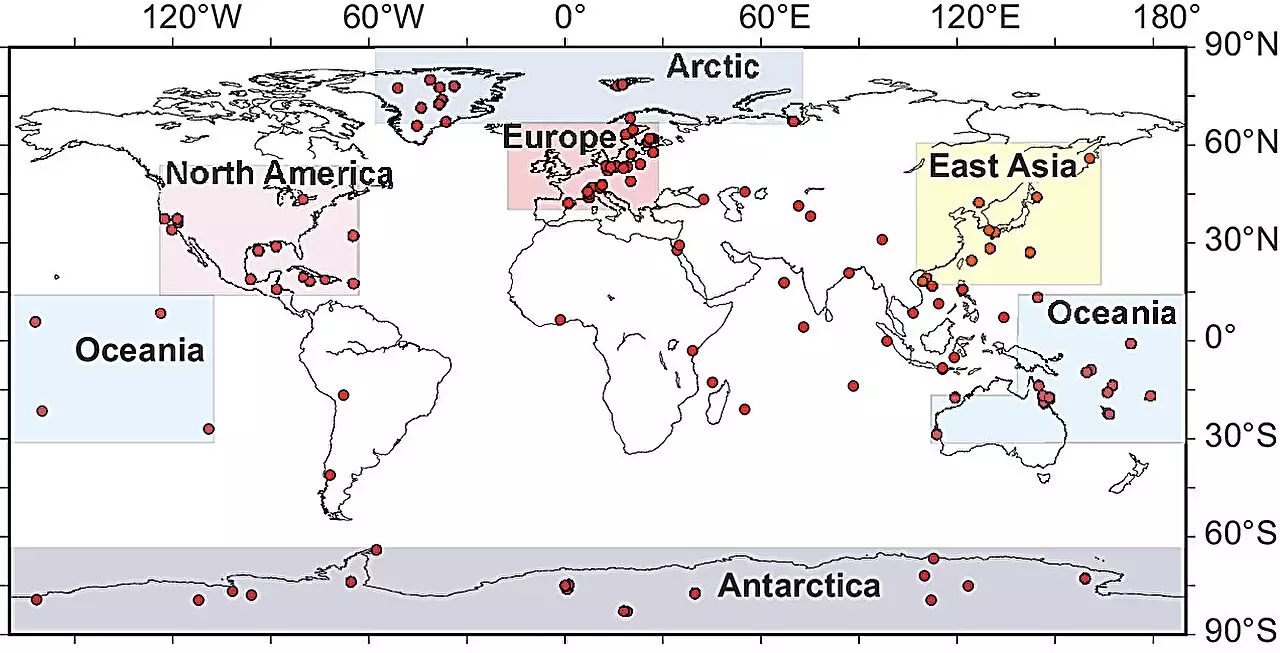The Anthropocene, a term that has gained traction since Nobel laureate Paul Crutzen proposed it in 2002, marks a significant shift in Earth’s history, signaling an era fundamentally shaped by human actions. Recent research led by a collaborative team from several prestigious Japanese and Australian institutions has shed new light on this contentious concept. Their paper, published in the *Proceedings of the National Academy of Sciences*, identifies the 1950s as the defining decade when the Anthropocene began—a choice that provokes both agreement and dissent within the scientific community. This decision to pinpoint a specific starting point for the Anthropocene opens a deeper dialogue about human influence on the planet, the consequences of our actions, and the long-lasting implications of our current trajectory.
Before reaching the consensus on the 1950s, the research team considered two earlier periods that some scholars had suggested as possible starting points. The first contender was the late 1800s, a transformative period marked by the onset of the Industrial Revolution. This era witnessed a dramatic increase in greenhouse gas emissions, mining activities, and the proliferation of heavy metals like lead in the environment. The onset of industrialization also came with significant alterations to ecosystems, including paved surfaces and burgeoning urban lifestyles.
The second candidate was the early 20th century, which brought significant alterations in global ecosystems, evidenced by extensive changes in pollen frequencies and increased black carbon emissions. The first half of the twentieth century also saw the introduction of synthetic materials and agricultural innovations. However, while both periods represent crucial junctures in human-Earth interactions, the authors of the recent study contend that neither offers the same level of definitive global impact as the mid-20th century.
The pivotal decade of the 1950s emerged as the most compelling candidate for the dawn of the Anthropocene, primarily due to the dramatic environmental changes evident across multiple domains. This decade was characterized by the mass production and distribution of organic pollutants, a significant rise in plastic consumption, and the advent of nuclear testing, which left its mark on the planet with radioactive isotopes detectable in sediment layers around the globe.
The introduction of the “Great Acceleration” phenomenon, encompassing consumer culture and high-volume industrial processes, indicates that human activities began to exert unprecedented pressures on Earth’s systems. This shift generated observable changes—such as rampant biodiversity loss and shifts in the chemical composition of the atmosphere—that researchers argue will persist for millennia. Furthermore, if humanity were to vanish today, the resultant changes to the planet, marked by microplastics and altered stable isotopes, would remain in the geological record as evidence of our era.
While the proposed starting point of the Anthropocene in the 1950s is compelling, it has sparked significant debate. Some critics argue that selecting a single decade as a marker oversimplifies the nuanced, interwoven developments that have characterized human impact on Earth. They suggest that the cumulative effects of human actions extend back centuries, affecting ecosystems long before the 1950s. Others challenge the very notion of designating periods of geological time based solely on human influence, advocating for a broader framework that acknowledges evolutionary and geological factors.
Moreover, the implication of officially recognizing the Anthropocene holds weight beyond academics; it demands that society confront its relationship with the environment. By clearly establishing markers in the timeline of Earth, we can better understand our responsibilities and strive toward sustainable practices to mitigate further harm.
As we reflect on our impact on the planet from this new vantage point, it is imperative to recognize the shared responsibility that accompanies our role in the Anthropocene. The findings from the research embarked upon by international scientists not only provoke critical thought about our ecological footprint but also rally for awareness of the precarious balance we seek with our environment.
By understanding that the period we inhabit has reached a crucial juncture, we can foster initiatives geared toward sustainability, conservation, and remediation. As global cultures blend, networks of knowledge and technology must be harnessed to promote ecological restoration and find pathways toward harmonizing humanity’s growth with the health of our planet. The Anthropocene is not just a title; it is a call to action, emphasizing that our collective future depends on the choices we make today.


Leave a Reply